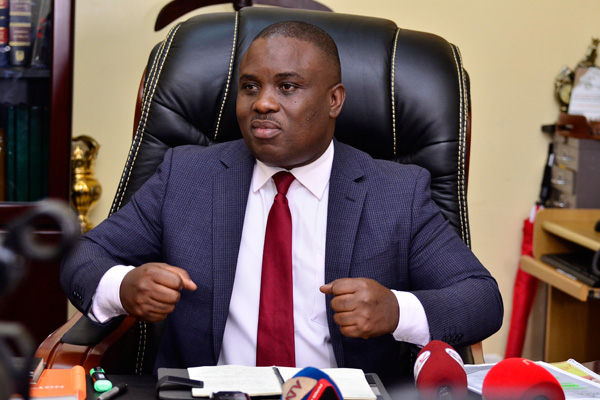Parliament has passed the Leadership Code (Amendment) Bill, 2020 that seeks to impose punitive measures on leaders and public officers who do not declare their wealth or who make false declarations.
The Bill requires a public officer to, within three months of starting work in the public service, declare his or her assets, incomes and liabilities to the Inspector General of Government (IGG). Thereafter, the declaration is every five years.
It also proposes to penalise a leader who does not, without justifiable cause, comply with the request within 60 days to a warning or caution, dismissal or vacation of office.
A person who does not file a declaration is liable to a fine not exceeding 20 currency points per month for the initial three months of non-submission of a declaration. The currency points rise to 40 per month for the next two months and then withholding of emoluments.
Some of the penalties for breach of the Code, include forfeiture of the monetary equivalent of the excess or undeclared property to the government where a person makes false declarations.
The Bill seeks to amend the Leadership Code Act, 2002 No.17 to clarify what constitutes interest in property by a leader and extend the jurisdiction of the Leadership Code Tribunal to complaints made by any person aggrieved by the decision of the IGG under section 7(7) of the Code.
The decisions of the Tribunal, which is mandated to hear and adjudicate breaches of the Leadership Code of conduct, the Bill proposes, are binding on the President thereby fettering his discretion in disciplining his appointees.
In 2017, Parliament passed the Leadership Code (Amendment) Act, 2017 which established the Leadership Code Tribunal.
According to the Chairperson of the Committee on Legal and Parliamentary Affairs, Hon. Jacob Oboth, various loopholes have been identified in the Act that will hinder the effectiveness of the Leadership Code Tribunal in enforcing the Leadership Code of Conduct.
“Prior to the amendment of the Act, penalties for breach of the Code were provided for in section 35 of the Act. Each of the prescribed penalties corresponded with a particular section regarding breach of the law.
“When the provisions were amended and substituted, there was no consequential amendment of section 35 to correspond with the substituted provisions. Unless this is amended, it will jeopardise the enforcement of the Act since it is untenable to enforce the law as is without breaches corresponding penalties,” reads the committee report.
Hon. Oboth presented the committee report to the House in a sitting on Thursday, 18 March 2021 chaired by Speaker Rebecca Kadaga.

















